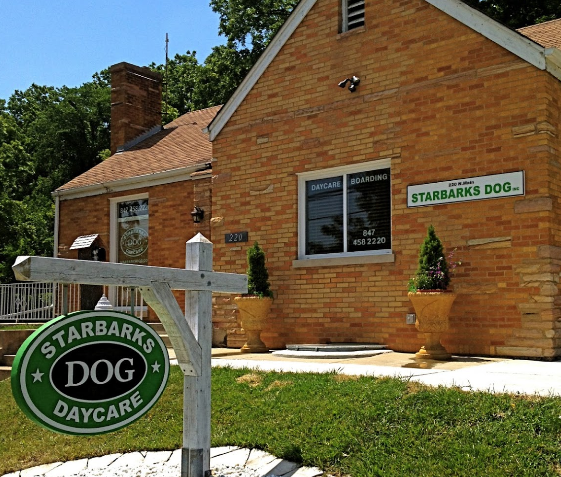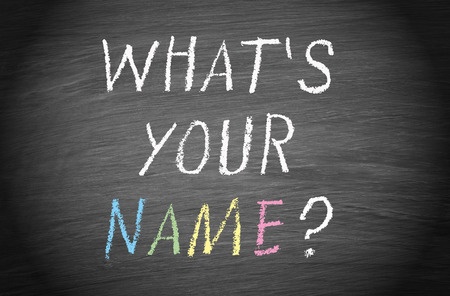Today, we're talking about how to come up with an amazing name for your company. Getting your brand name wrong can cost you literally thousands. If not, it can cost you a lot of money.
There's a lot at stake when you're trying to come up with the right name for your business, because if you get this wrong, you can spend literally thousands of dollars on marketing materials, websites, social media, brand recognition, all these things just to find out later on that you've either picked the wrong name or pick the name that somebody else is already using or picked a name that is not even capable of being trademarked. So you want to get this right.
And today I want to talk to you about the five main categories of names that you can choose for your business. What are the best ones? What are the worst ones? And how to pick the right sweet spot category that's going to work for you so that your business can be smooth sailing later on when it comes time to trademark the name of your brand. And by the way, this also applies to product offerings as well. It's not just for brand names. It's also for the products and services that you might be selling in your business.
So let's take a minute and talk about what a lot of people do when they're naming a business for their brand. They basically just do a brainstorm, come up with something that sounds good. Or maybe they have that light bulb moment where they decide, you know what? This is a name. That's going to work for my business and I'm going to go with it. And they do and it normally doesn't work out quite so well.
Here is a link to related video about all the mistakes that people make when coming up with names for your online business. But today, what I want to talk about are the five best categories of names that you can use when thinking about how you want to trademark your business, because ultimately you do want to trademark your business. This is one of the best investments you can make in your business. Especially if you're thinking that somewhere later on down the road, you want to sell your business.
Whenever somebody comes to me with a trademark idea, I want to talk to them about the five main categories of trademarks. So when you're coming up a name for your trademark, these five main categories, I'm going to go through them real quick. And then we're going to go through them one at a time in a little more detail. So we've got fanciful, arbitrary, suggestive, descriptive, engineering. Those are the five categories of names. Let's talk about them each one at a time and then we'll talk about what are the best names and what are the worst names.
Trademark Category #1 – Fanciful Names
So let's talk about fanciful names first. Fanciful names are basically made up names. They're names that were not in the dictionary before you came up with the name. So if you make something up that is by definition, a fanciful name, some examples of this are going to be Google, Kodak, Skype. These are all fanciful names, none of them existed before the companies created those names to name their business. Zappos is another one that I would throw in there except Zappos comes from the Spanish word, zappatos which means shoes. So that's a little bit of gray area, but I would call it fanciful.
Here's the pluses to using fanciful names. Fanciful names are very easy to be trademarked, but there's also some negatives that go with them because when you make up a name, nobody knows what the you're talking about. And so you have to have a lot of money to put behind that brand to educate the public about what it is that you're actually selling. So in general, from a trademark perspective, fanciful names are going to be great. But from a practical standpoint, they're not so great because they take a lot of time and money to educate the public.
Trademark Category #2 – Arbitrary Names
The second category of names are going to be the arbitrary names, and these are names that are already in existence, but they're being used in a way that is unrelated to their initial meeting. Some great examples of this are going to be Apple and Amazon. All of those are names that were in the dictionary before Apple decided to use apple as their brand name or before Amazon decided to use these names.
They're being used in a way that is completely unrelated to what the word was initially intended. We all know what an apple is, but Apple is a computer company and it has nothing to do with selling apples. Amazon, I'm not sure where Jeff Bezos came up with the name, Amazon. I'm sure there's a story behind that. That is clearly used in a way that is not what it was initially intended. We're not talking about selling a rainforest. We're talking about selling an online marketplace to sell books is what it started out with as. So arbitrary names, the pros and cons here are number one, the pros from a trademark perspective, again, they're going to be names that are fairly easy to trademark, but the cons again, just like with the fanciful names, you have to do a lot of education.
You got to tell people what you're all about, and that takes a lot of money and time and effort. A lot of people aren't necessarily going to know what your business is about when you're just getting started. From that standpoint, again, as a practical matter, they're not necessarily going to be the best names for a small online business that might be a solopreneur or something that you're doing with your spouse or a couple of friends building up an online business.
Trademark Category #3 – Suggestive Names
So suggestive names is a third category names. These are going to be names that suggest a quality or characteristic of the goods or services that you were selling. So great examples of this are going to be Greyhound, FaceTime, Snapchat, Wrangler.
These all kind of have these Greyhound sounds like it's something that's going to be fast. So it's greyhound bus, fast bus, Wrangler kind of gives you the sense of this cowboy style. And that's kind of indicative the jeeps that are being sold. Suggestive names are really good names for trademark purposes because again, they're names that are previously in the dictionary, but they're being used in a different sort of way. But at the same time they're being used in a way that kind of suggests what the good or service is all about. When you're using a suggestive name, you don't need to spend as much money. There still needs to be some education involved, but you don't need to spend as much money explaining to the public what the brand is all about.
I haven't talked about this a lot in the past, Hawthorn Law is a suggestive name and the reason it's a suggestive name is because a Hawthorn tree or a Hawthorn bush was used back hundreds of years ago to protect property from thieves and predators. And at Hawthorn, we protect online businesses from people that would steal your brand, other businesses, people that might sue you, the government taxes, all these things. We're trying to protect online businesses from all these predators that might come in and try and steal your property. From that standpoint, Hawthorn, the name I've chosen in Hawthorn Law is somewhat suggestive of the type of law practice that we're trying to build.
That's a pro tip. So these first three, the fanciful, the arbitrary and the suggestive, those are kind of the above the bar terms. They're going to be easiest to trademark if, and when you decide that you want to trademark your brand. These next two categories are much more difficult to trademark and actually the last category is incapable of trademark protection at all.
Trademark Category #4 – Descriptive Terms
The fourth category is going to be called descriptive terms. Descriptive terms are terms that merely describe the product or service. They might also use the owner's name or the geographic location where you do business. So I've talked about this in a past video. If I were a law firm and I named my firm, the Raleigh law firm or the Carey law firm, because that's where my law firm is located in North Carolina, that I can't trademark that. It's just the description of the geographic location, where we're located.
Now, that's not to say that these terms can't ever be trademarked. They can, if over time they acquire distinctiveness. Then at a certain point, they can actually be trademarked. However, when you're just starting your business, if your mark is merely descriptive and nothing else, then it is not going to be able to be trademarked. Your application will be denied. There are some fairly famous examples of trademarks that are merely descriptive.
For example, McDonald's was named after the McDonald's brothers who started the burger franchise, but at the time that it was started, it didn't have the distinctiveness that it has today. American Airlines is merely descriptive of the fact that we've got an airline that exists in America. Bank of America, same thing. Using a descriptive term, although you're not going to be able to trademark that term right off the bat. If you continue to work at and build your brand, then over time, you will be able to trademark that term, but you got work at it.
Trademark Category #5 – Generic Terms
The last category is generic terms, and these are terms that are not capable of being trademarked at all. These are just basically table store would be one. I'm not sure how the Container Store got trademarked, but it's probably because it's acquired distinctiveness over time. And they're looking at it as a descriptive term. But if you said the Apple store, and it's not a store that sells computers, it's a store that sells apples. You're not going to be able to trademark that term.
So if you're thinking about what type of name you want to use to trademark your business, you definitely want to consider names that are above the bar. So you want to look at probably the suggestive terms more than anything else, because words that are unrelated to your business, but do convey a meaning about what you do or what you sell in a positive way are going to be the most memorable and powerful brand names for your business.
And those are the ones you really want to focus on when you're thinking about what type of name to use for your business or for the products or services that you sell. So if you want to learn more about how to trademark your brand or the products or services you sell, I've got another video right here. That's going to give you an overview of the process and what you need to know and what you need to do, if that's something that you want to do. So check this video out and we'll see you next time.



